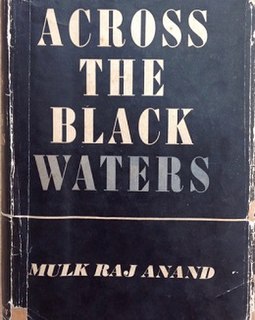 W
WAcross the Black Waters is an English novel by the Indian writer Mulk Raj Anand first published in 1939. It describes the experience of Lalu, a sepoy in the Indian Army fighting on behalf of Britain against the Germans in France during World War I. He is portrayed by the author as an innocent peasant whose poor family was evicted from their land and who only vaguely understands what the war is about. The book has been described as Anand's best work since the Untouchable.In Lalu's tragedy lied the tragedy of the Indian village and Anand dramatizes a poignant truth: to disposses any one of land is to deny him an identity.—Basavaraj Naikar
 W
WThe Big Heart is a novel written in 1945 by Indian novelist Mulk Raj Anand. The theme of the novel is the conflict between hereditary copper smiths and the capitalists. It is a novel about a village of artisans in Amritsar District in the early 1940s whose livelihood is destroyed by the establishment of a factory producing copper utensils.
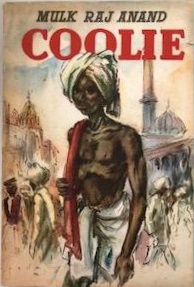 W
WCoolie is a novel by Mulk Raj Anand first published in 1936. The novel reinforced Anand's position as one of India's leading English authors. The book is highly critical of British rule in India and India's caste system. The plot revolves around a 14-year-old boy, Munoo, and his plight due to poverty and exploitation aided by the social and political structures in place. Anand here tries to break the traditional way of life.
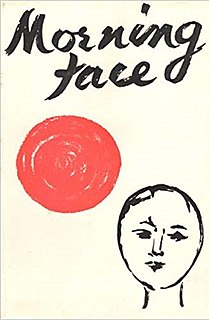 W
WMorning Face is a novel by Mulk Raj Anand and was first published in 1968. The book won the Sahitya Akademi Award in 1971. The book features Anand's autobiographical narrative that was first used by him in Seven Summers. He delivers the story through a personalized telling of the late independence era politics and history. Anand himself considered the book to be on the structural lines of Raja Rao's The Serpent and the Rope, but separated by the values espoused.
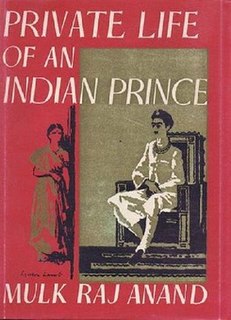 W
WThe Private Life of an Indian Prince is a novel by Mulk Raj Anand first published in 1953. The book is classified as one of Anand's most impressive and important works. In keeping with his other writings dealing with the topic of social and political reform, this book deals with the abolition of the princely states system in India. While the novel is not an autobiography, like many of his earlier novels, it follows an autobiographical tone.
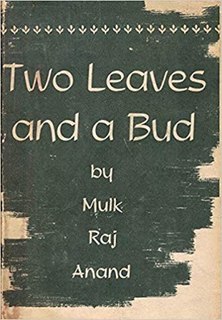 W
WTwo Leaves and a Bud is a novel by Mulk Raj Anand first published in 1937. Like his other novels, this one also deals with the topic of oppression of the poor, and is about a peasant who tries to protect his daughter from a British soldier. The story is based in the tea plantations of Assam. The book was subsequently adapted to a Hindi film, Rahi, by Dev Anand and simultaneously released in English as The Wayfarer. The book depicts in detail the concept of haves and have-nots and the exploitation of one at the hand of the other, in pre-independence India.
 W
WUntouchable is a novel by Mulk Raj Anand published in 1935. The novel established Anand as one of India's leading English authors. The book was inspired by his aunt's experience when she had a meal with a Muslim woman and was treated as an outcast by her family. The plot of this book, Anand's first, revolves around the argument for eradicating the caste system. It depicts a day in the life of Bakha, a young "sweeper", who is "untouchable" due to his work of cleaning latrines.
 W
WThe Village is a novel by Mulk Raj Anand first published in 1939. This book was the first of a trilogy that included Across the Black Waters and The Sword and the Sickle. The plot centers on India's political structure, specifically the British rule and the independence movement. The novel revolves around Lal Singh a peasant in the Punjab, his antics going against social norms while in the village, his subsequent enrollment in the army and his troubles in the army, culminating in his return to the village.